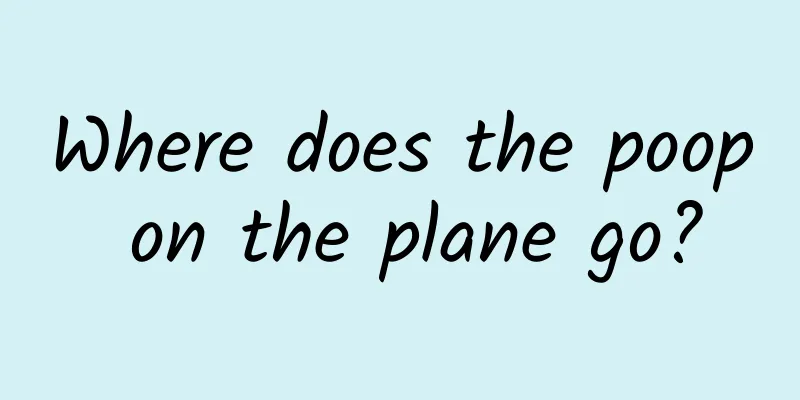If you drool while sleeping, beware of these 4 diseases! Don't ignore them!

|
Many people will find their pillows wet with saliva when they wake up. At this time, they often wonder what delicious food they dreamed about that made them drool so much... In fact, drooling has nothing to do with whether they dreamed about delicious food. The parotid gland, submandibular gland and sublingual gland are the main organs of saliva secretion. The saliva secreted by the salivary glands flows into the mouth through the duct. The amount of saliva secreted is controlled by the cerebral cortex and is also affected by diet, environment, age, emotions, or salivary gland diseases. According to statistics, the daily saliva secretion of a normal adult is 1000ml to 1500ml, which assists chewing and digestion, fights bacteria and sterilizes, and protects the oral mucosa. However, people can actively swallow saliva when awake, but when asleep, the swallowing reflex is weak, the swallowing-related muscles are relatively relaxed, and the excess liquid in the mouth cannot be regulated, which can cause drooling. In addition, incorrect sleeping posture, oral inflammation, gastroesophageal reflux disease, rhinitis, Parkinson's disease, obstructive sleep apnea syndrome and other diseases may cause drooling while sleeping. 01 Oral Disease If you do not pay attention to cleaning after meals, food residues or sugar substances will accumulate in the gaps between teeth and on the tooth surfaces, which can easily lead to tooth decay and periodontal disease. If you find yourself drooling while sleeping, and the drooling smells salty and your pillowcase is yellowish, it may be caused by poor oral hygiene, accumulated food debris, dental tartar, or inflamed gums. Oral ulcers, tooth decay, tonsillitis or dentures can stimulate the mouth to secrete saliva, especially after falling asleep when the frequency of swallowing decreases, saliva will naturally flow out. In addition, malocclusion problems such as buck teeth will prevent the mouth from closing naturally. In addition, the muscles become relaxed after falling asleep, and saliva will continue to flow out, which will make it easier for saliva to "flow out" during sleep. Sleeping in the supine position can reduce drooling while sleeping. In addition, patients with increased drooling due to oral diseases should pay attention to rinsing their mouths as soon as possible after meals, brushing their teeth in the morning and evening, and using fluoride toothpaste and washing their teeth regularly. 02 Gastroesophageal reflux disease Gastroesophageal reflux disease refers to the reflux of food and gastric acid that have already entered the stomach, returning to the esophagus and other parts of the body except the stomach. Patients with gastroesophageal reflux disease may experience discomfort symptoms such as heartburn, acid reflux, chest pain, and may also be accompanied by excessive reflex secretion of saliva. If these conditions occur, they can be improved through sleep behavior: ① Raise the head of the bed when sleeping (note that it is not a pillow) to form a slope of about 15°~20°; ② Quit smoking and try not to eat foods that are high in sugar, high in fat, strong tea, coffee, and chocolate that can easily reduce the pressure of the lower esophageal sphincter; ③ Eat small meals frequently, try not to eat 3 hours before going to bed, and stand or walk appropriately after meals. In addition, drugs that inhibit gastric acid, such as omeprazole, or the addition of gastrointestinal prokinetic drugs, such as metoclopramide and mosapride, can also improve gastroesophageal reflux. 03 rhinitis Patients with nasal concha hypertrophy, nasal polyps, chronic rhinitis, allergic rhinitis and colds may have difficulty breathing due to nasal discomfort. In order to ensure normal breathing, they often use their mouths instead of their noses to breathe. When the mouth is open for a long time, saliva is less blocked and flows out more easily. In this case, you can take oral anti-allergic drugs or apply external hormone drugs to the nose regularly for improvement. The following are commonly used in clinical practice: ① Nasal decongestants, commonly used ones are furoma nasal drops, which can shrink the nasal mucosa, relieve nasal congestion, and improve drainage. However, such drugs should not be used continuously for more than seven days, otherwise it is easy to cause drug-induced rhinitis and affect the sense of smell; ②Nasal glucocorticoids are currently the preferred topical medication for the clinical treatment of rhinitis and sinusitis. Glucocorticoids have anti-inflammatory effects, can reduce the degree of nasal mucosal inflammation, and relieve nasal congestion symptoms; they have low bioavailability and few systemic side effects, and are ideal topical medications for inflammatory diseases of the nasal cavity and sinuses. Budesonide nasal spray is commonly used. 04 Parkinson's disease Parkinson's disease is a disease in which a specific area of the brain slowly "ages". It affects many aspects of the body, including chewing and swallowing functions, shaking hands and feet when at rest, decreased sense of smell, difficulty in movement, sleep disorders, constipation, etc. After suffering from Parkinson's disease, the swallowing function will deteriorate and the saliva cannot be swallowed in time; damage to some nerves will lead to excessive saliva secretion, so Parkinson's patients are prone to drooling, which is also an early symptom of Parkinson's disease. If these conditions are found, it is recommended to go to the neurology department as soon as possible for early detection, early diagnosis and early treatment. 05 Obstructive sleep apnea Obstructive sleep apnea syndrome is caused by frequent upper airway obstruction at night. Patients usually snore loudly and unevenly, and may even be awakened by suffocation. Patients will open their mouths involuntarily during sleep to compensate for upper airway obstruction. The airflow stimulation from oral breathing will cause excessive saliva secretion. At the same time, patients with sleep apnea are prone to gastroesophageal reflux at night, which in turn causes excessive saliva secretion. If this happens, you should first try to sleep in a side-lying position and avoid drinking. If there is no improvement, you should go to the sleep medicine or respiratory department as soon as possible for early diagnosis and treatment. Author: Yi Huijie Popular Science Writer Reviewer: Peng Zhiping, Director of the Information Science Department of the China Sleep Research Society |
>>: What is added to the coffee in the store? Why is it so expensive?
Recommend
Cadillac Minister Feng Dan calls for anti-counterfeiting on Pinduoduo: refurbished cars, fakes
"Refurbished cars, fakes." Shanghai'...
Xu Juntai's "21 Excel Function Lessons, Complete a Day's Work in 5 Minutes"
The EXCEL workplace office series of courses star...
Some people look strong, but their bones are already porous!
This article was first published by Hunzhi (WeCha...
International Children's Day丨May we always keep our childlike innocence and our original aspirations!
"childhood" It's in our life The be...
From these 4 traits, you can see if you are a high-potential designer!
I have been working with some newcomers recently ...
Yuanqi Forest Private Domain Dismantling
This article analyzes the industry background and...
After eating Houttuynia cordata once, I realized the cruelty of nature.
Legend has it that before the first pioneer who p...
23 tricks to grab user fans, how many of them have you fallen into?
"How can I get others to pay attention to my...
How to write an SEO execution strategy? How do businesses implement SEO strategies?
The result of using strategies to guide the speci...
Overview of Machine Learning Algorithms (with Python and R Code)
"Google's self-driving cars and robots g...
"Poet Immortal" Li Bai was not dazzled, it turns out that he could really "produce purple smoke"!
Recently, many netizens captured a wonderful scen...
It turns out that the "sea monster" in Avatar really exists on Earth!
Recently, "Avatar: The Way of Water" wa...
Can frozen steamed bread be eaten after more than two days? The scientific truth behind the fact that aflatoxin is nearly 70 times greater than arsenic
Recently, a short video claiming that "Zheji...
From 0 to 1 million users, what operations need to do!
Let me introduce myself first. Before last year, ...
Getting Started Guide to Internet Finance Promotion and Operation (Part 2): Correct User Portrait!
Those who have read my first article, Getting Sta...









